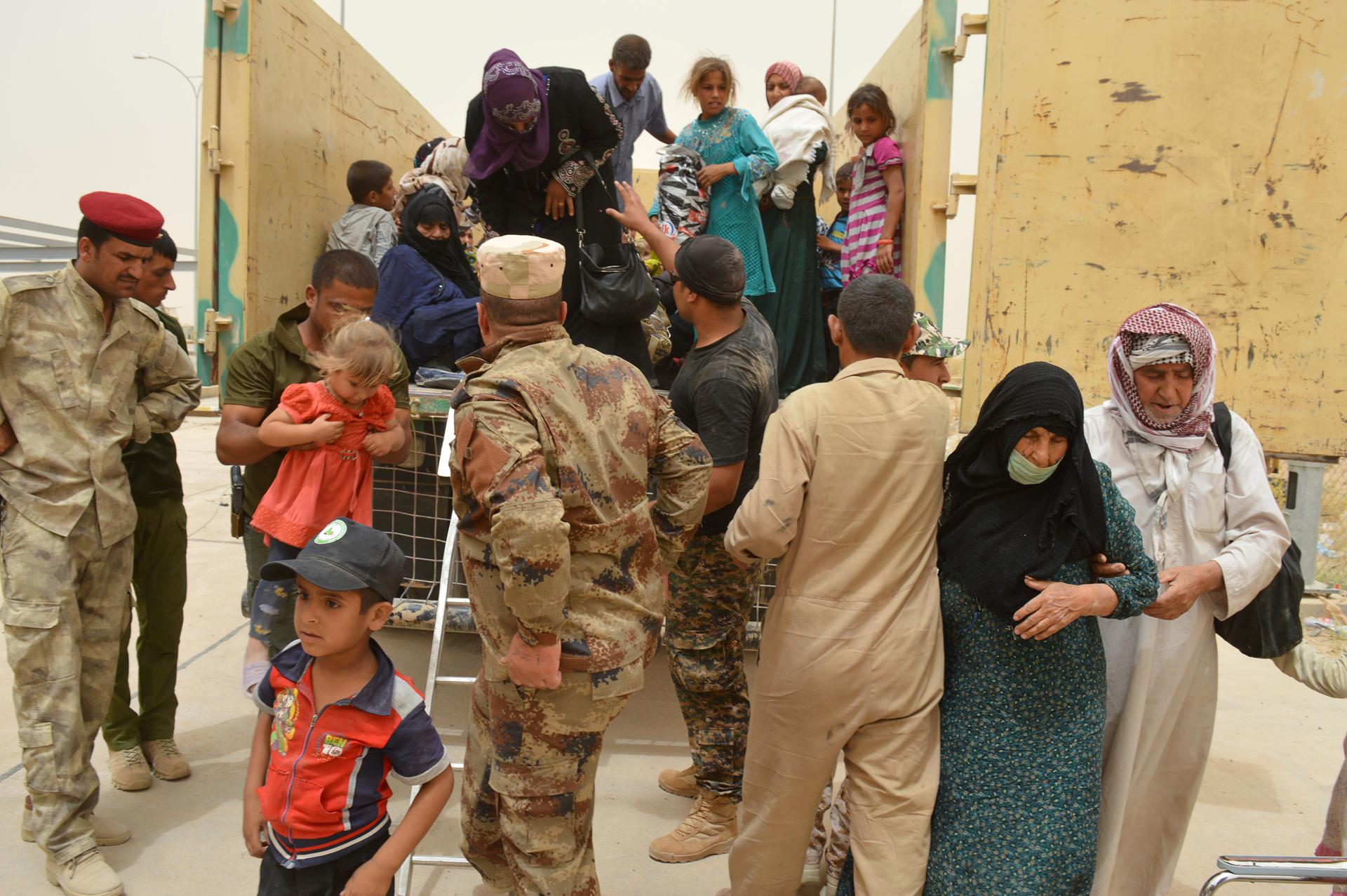‘From one hell to another’: Humanitarian disaster looms as thousands escape Fallujah
Iraqi soldiers help civilians, who fled from Fallujah because of Islamic State violence, during a dust storm on the outskirts of the town. Iraq, June 18, 2016.
A humanitarian disaster is playing out around the Iraqi city of Fallujah. At least 30,000 people have fled the city in the last few days alone, as Iraqi forces have driven back ISIS fighters in the area.
Many are arriving in displacement camps on the town's outskirts. Aid agencies say they are overwhelmed by the numbers.
“The conditions are nightmarish,” said Karl Schembri from the Norwegian Refugee Council, which is leading humanitarian efforts in the area.
“Our staff are doing all they can. They are working 24 hours a day. But the tsunami of displacement that has happened over the last three days is overwhelming everyone.”
Aid workers are struggling to provide sufficient food and water, says Schembri. People have been forced to sleep on the ground without shelter. During the day, they have been dealing with temperatures of up to 120 degrees. He says some in the camp are dying.
Many of the people arriving at the camps have already been suffering considerably in Fallujah. The city has been under siege for the last six months, and reports have suggested that tens of thousands of people have been going without regular supplies of food and clean water.
“They have fled from one hell and stepped into another,” said Schembri. “It is one, long protracted tragedy that these people are going through. It is just unfair and unacceptable that they are now in what is meant to be a place of safety, and we are witnessing another catastrophe.”
Iraqi forces have retaken most of the territory in central Fallujah, which ISIS had held for more than two years, and are currently battling ISIS fighters who remain in several pockets across the city.
The military announced on Saturday that it is now turning its attention to Mosul, which is the terror group's de facto capital in Iraq. Prime Minister Haider al-Abadi declared on Friday that the city would be liberated "very soon."
Mosul is a much larger city than Fallujah, with a population of at least 1 million, and there are already concerns about the potential humanitarian implications of a full-scale battle for that city.
“Mosul is going to be hell on earth,” said Schembri. “The figures involved there and the sheer immensity of that city are going to be completely unmanageable.”
Every day, reporters and producers at The World are hard at work bringing you human-centered news from across the globe. But we can’t do it without you. We need your support to ensure we can continue this work for another year.
Make a gift today, and you’ll help us unlock a matching gift of $67,000!
